Importance of Blood Donation, Blood Grouping and Blood Transfusion
Invention of Blood Group:
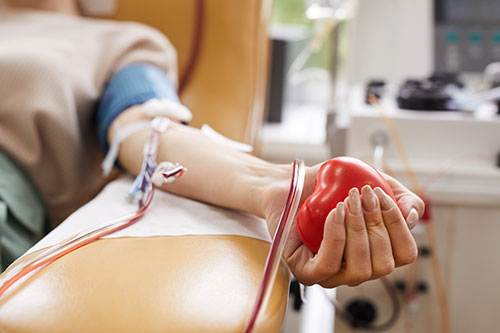
At the beginning of the 20th century, Karl Landsteiner identified ABO blood groups, at which time blood typing of individuals was only beginning to get adopted as a universally standard practice. Nowadays, transfusion takes place only after multiple quality checks, screening test and compatibility testing. Drugs Controller General of India has made blood bank licenses mandatory before collecting blood from any donor.
Blood Donation:
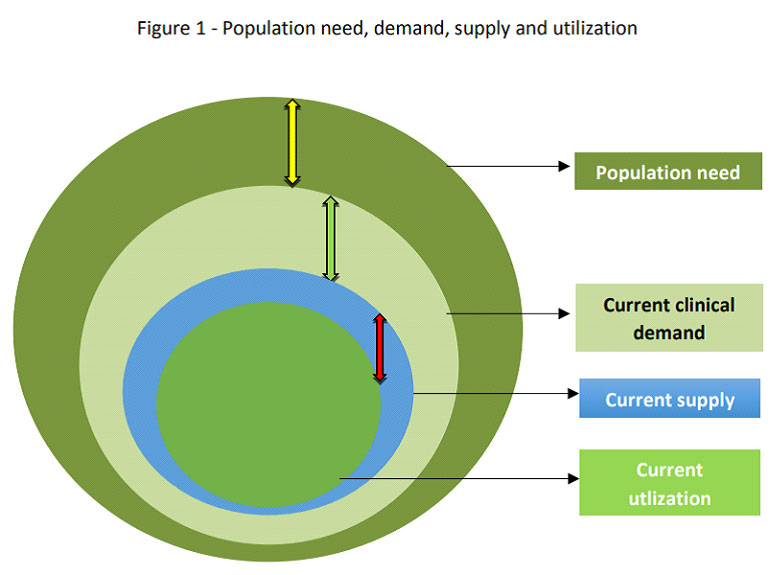
India has the world’s largest shortage of blood, with all states together battling a huge shortfall of 41 million units. India relies heavily on transfusions due to a higher prevalence of blood-borne diseases and complications during pregnancy. About 60 million trauma-induced surgeries are performed in the country every year. It is witness to more than 1,200 road traffic accidents every day. The 230 million major operations, 331 million cancer-related procedures like chemotherapy and 10 million pregnancy complications require blood transfusion. As per government data, 34 per 1,000 eligible people must donate blood once in a year to address the estimated clinical demand.
Voluntary blood donors are the cornerstone of a safe and adequate supply of blood and blood products. The demand for blood and blood products has steadily increased every year. Unfortunately, the supply of blood lags far behind the demand.
Save 3 Lives with One Donation:
A single blood donation can save three lives. After donation, the donated blood unit is separated into 3 components – red blood cells, platelets and plasma by centrifugation process and can be issued to 3 different patients. One hour of your time in blood donation can give hope and save 3 lives.
Donation Process:
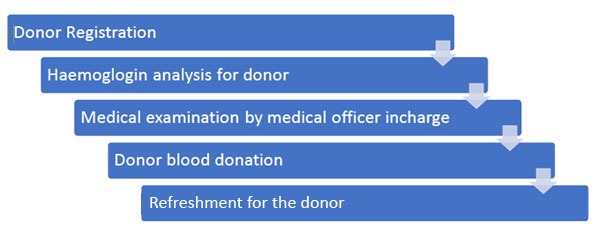
Importance of Blood Grouping:
There are four major blood groups: A, B, AB and O which all refer to the presence of different antigens in the red blood cells. Blood group A means you have the A antigen, while blood group B means you have the B antigen. Blood group AB has both the A and B antigens present on the surface of red blood cells, but blood group O has neither antigen present. People who have the D antigen in their red blood cells are Rh D positive, while those people, who don’t have the D antigen are Rh D negative.
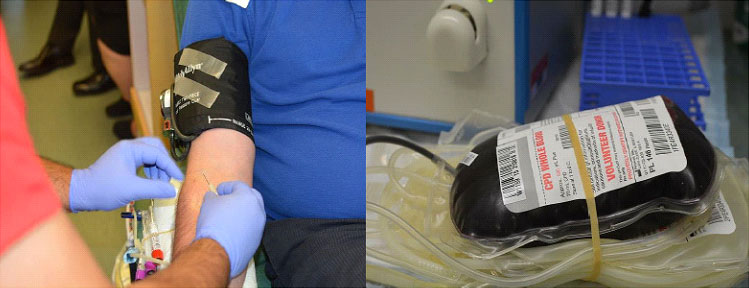
The accurate grouping of blood is very important when it comes to having a blood transfusion. If incompatible blood is given to a patient, it can cause severe transfusion reactions.
Importance of Blood Transfusion:
Many patients requiring a transfusion do not have timely access to safe blood. Blood cannot be stored indefinitely, meaning there is a constant need for donations. Regular donations are required to ensure there is always a supply for those in need.
Every few seconds, someone, somewhere, needs blood.
Transfusions of blood and blood products save millions of lives every year.
Health is a human right; everyone in the world should have access to safe blood transfusions, when and where they need them.
Everyone who can donate blood should consider making regular voluntary, unpaid donations, so that all hospitals have an adequate blood supply.
Access to safe blood and blood products is essential for universal health coverage and a key component of effective health systems.
Before Transfusion: The following are done before issuing blood to the patient.
- Screening for transfusion transmissible infections – HIV, hepatitis B, hepatitis C, malaria and syphilis
- Screening for antibodies
- Compatibility test between donor and recipient
- Quality check
Kauvery Regional Blood Centre
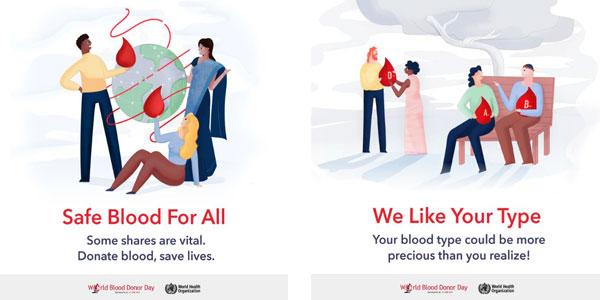
To fulfil blood requirements, Kauvery has implemented its new project for patients’ welfare. Kauvery Regional Blood Centre will soon function as the heart of healthcare for the hospital and for the patients.
Who Can Give Blood: Below are some basic eligibility guidelines:
- Age – 18-65 years old
- Weight – more than 45 kg
- Haemoglobin level – more than 12.5 g/dl
- Must be in good health at the time of donation
World Blood Donor Day is observed on 14th June each year. The aim is to raise global awareness of the need for safe blood and blood products for transfusion and the critical contribution voluntary, unpaid blood donors make to national health systems.
Blood donation is a small act of kindness that does great and big wonders – come forward and donate blood for human welfare.

Dr. Sudesh C
Junior Consultant – Transfusion Medicine
Kauvery Hospital, Chennai

